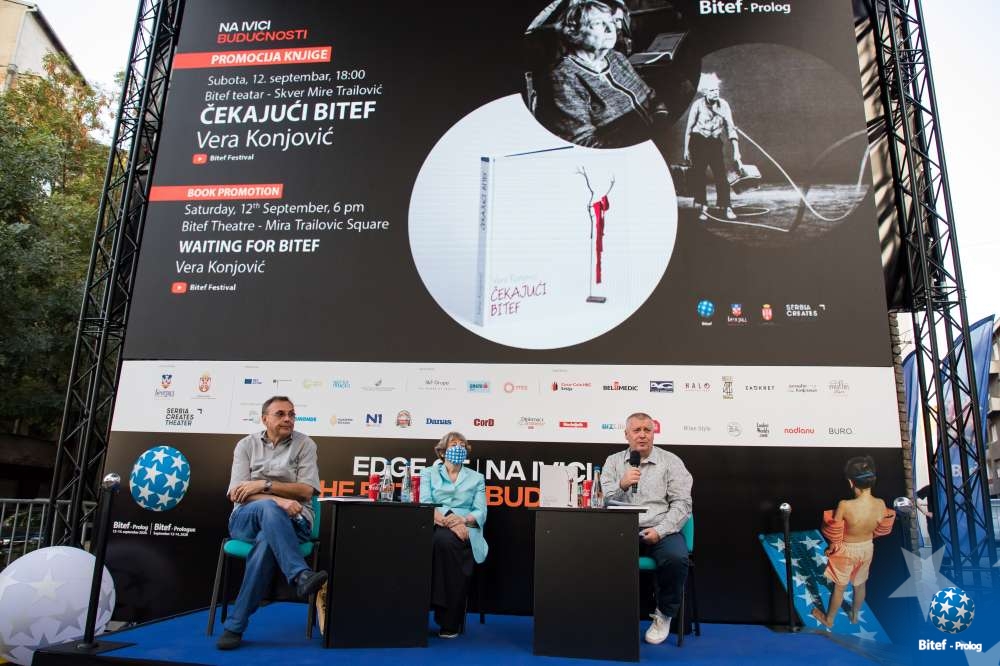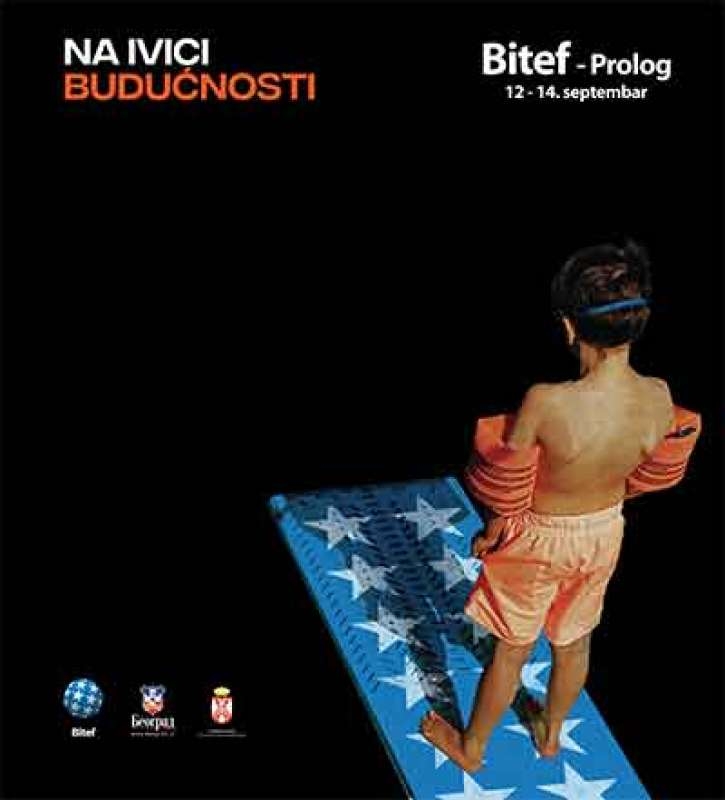The following happened in 2010, at 44th Bitef Festival.
Hungarian performance Frankenstein-project directed by the famous Kornél Mundruczó was in the main programme. At the entrance, we were all given headphones since the performance, largely based on interpretation, was not translated through previously prepared and incorporated subtitles but via simultaneous interpreting. At that Bitef, I worked as a translator but also as a member of the Festival bulletin and was supposed to interview Mundruczó, who not only had not come but everybody (including the members of his own team) claimed that he refused to give any interviews. Ever.
Okay. Whatever (thought my young and insecurely presumptuous self).
So, already prejudiced against the director, I get in and sit, incidentally, right next to the young theatre director from Novi Sad, Attila Antal. Being a native speaker, Attila, naturally, does not need headphones. The audience settles down, the performance begins, and Vera Konjović’s unwavering voice echoes through the headphones. Very quickly, I am shocked that someone can interpret with such speed and confidence. Amazed, I take my headphones off and give them to Attila who whispers: “I speak Hungarian”, thinking I must’ve gone mad. “Yes, yes, I know. Listen.” He hesitantly takes the headphones, puts them on one ear, leaving the other one exposed to the language coming from the stage. I could see his face changing in amazement. “It’s… but… It’s perfect… How does she manage that?!” Someone shushed us from behind and so we resumed watching the performance.
The very same evening, I sent an e-mail with five questions to Mundruczó, asking him to answer at least one of them. I got the reply the same night - all five answered. The members of his team were stunned that he even replied let alone answered the questions, and I became aware that “impossible” is allowed to exist only if all serious attempts fail. Vera’s impeccable interpretation, her serious approach to a seemingly impossible task, made me confident that I at least have to try.
Ten years later, Mrs. Vera Konjović has published a book Waiting for BITEF, about all the people she has met at the Festival, about all the events she has witnessed, telling a story about an important segment of theatre history in Serbia but also about herself. When someone who is so determined, knowledgeable, educated, perceptive and eloquent writes such a book, you can be sure that nothing is missing, and that everything is written in a riveting and yet easy way. In a word - that it is worth reading.
Vera is an institution in her own right, everyone who has ever talked to her will tell you that. How she came to Bitef and how she stayed and became one of its pillars, is already known from various sources and can also be found in the book Waiting for BITEF that had its promotion last night, on the eve of Bitef-Prologue. What is important to note, however, is that Vera has always been more than a translator, more than an interpreter, more than a selector and editor of Bitef on Film, one of the most beloved and most long-lasting Bitef side programmes. She has always been one of the most trustworthy colleagues, (too) outspoken and direct sometimes but always motivating and inspiring, someone who sets the benchmarks in terms of professionalism.
Waiting for BITEF is an invaluable contribution to the history of Bitef Festival, a type of writing once called “autobiography about others”, as the Bitef Theatre director, Miloš Latinović, mentioned at the promotion, but also a book everyone will enjoy. I hope that someday it will be translated into English and become available to international theatre lovers, but also that someone someday will compile and publish all the anecdotes that involved Mrs. Vera Konjović, the ones that she could not have seen from her point of view.
That would make an equally compelling read.
Vesna Radovanović

